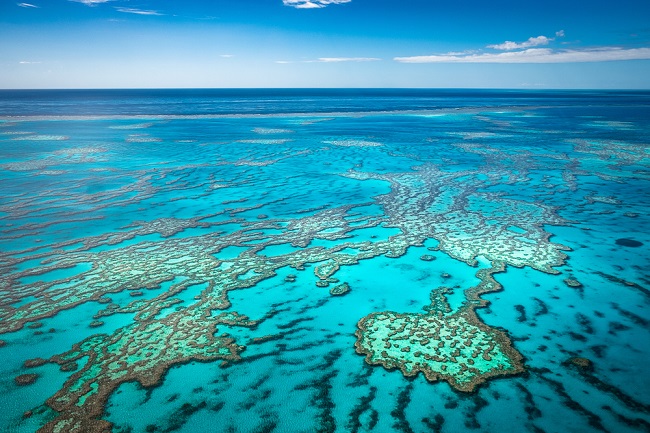Recovery of shark populations alters the behaviours of reef fishes
Published: 8 April 2025
The return of apex predators like sharks can restore critical ecological balance to coral reefs, creating healthier ecosystems
The return of apex predators like sharks can restore critical ecological balance to coral reefs, creating healthier ecosystems.
New research found a rise in the shark population on Ashmore Reef, off the north-west coast of Western Australia, coincided with an increase in other large and mid-sized predatory reef fish and a decline in smaller species.
A collaboration between the University of Glasgow, University of Western Australia’s Oceans Institute, and the Australian Institute of Marine Science the study is published in the Journal of Animal Ecology.

Researchers analysed videos from baited remote underwater video systems collected before enforcement of the area’s no-take status in 2004, when there were few sharks, and in 2016, after shark populations had recovered. The findings indicated that small mesopredatory reef fishes exhibited anti-predator behaviours – including less foraging for food – when they were under threat by larger predators.
An overabundance of any species can disrupt the ecosystem balance in a coral reef. In particular, a large and unchecked population of small mesopredatory fish can have impacts down the food chain, as they able to over-consume young fish or invertebrates leading to a shortage in those species.
The results show how reefs should function in a relatively pristine state and gives insights into the role big predators such as sharks play in maintaining these ecosystems, which is essential information to improve the resilience and survival of reefs.
Professor Shaun Killen, Professor of Ecophysiology, Ecology & Environmental Change at the University of Glasgow, said: “This study really shows the importance of conserving top predators like sharks. Their return doesn’t just restore numbers, it restores critical ecological interactions that are vital for healthy marine ecosystems.
“Removing large predators and allowing mesopredators to proliferate can destabilize ecological balance, leading to unpredictable changes in species abundance and interactions that can negatively affect overall reef health.”
De Mark Meekan from the University of Western Australia’s Oceans Institute said: “Reef shark populations on Ashmore Reef have increased significantly since effective enforcement of the no-take Marine Protected Area status of the reef started in 2008.
“This has enabled us to examine how these large predators have the potential to structure reef communities through the behavioural effects they have on their prey. In this situation, fearful prey reacts to an increase in predation risk by exhibiting traits to reduce exposure, such as being more wary.
“These responses can alter the prey’s behaviour so they spend much more time avoiding predators, which limits the amount of time they have available for important activities including reproduction and foraging — when they do forage, they may be forced into poor quality habitats.”
Zoe Storm, lead author of the study who carried out the work at the University of Glasgow, now at James Cook University, said: “Our work contributes to the growing evidence that predators can have important indirect effects on other species in food chains by triggering behaviours in prey that attempt to lower their risk of predation.”
The study, ‘Recovery of Reef Shark Populations Invokes Anti-Predator Behaviours in Mesopredatory Reef Fishes on a Coral Reef’ is published in the Journal of Animal Ecology. The data collection for the study was part of the Global FinPrint Project funded by Paul G. Allen Philanthropies.
Enquiries: ali.howard@glasgow.ac.uk or elizabeth.mcmeekin@glasgow.ac.uk
First published: 8 April 2025
<< MVLS News

